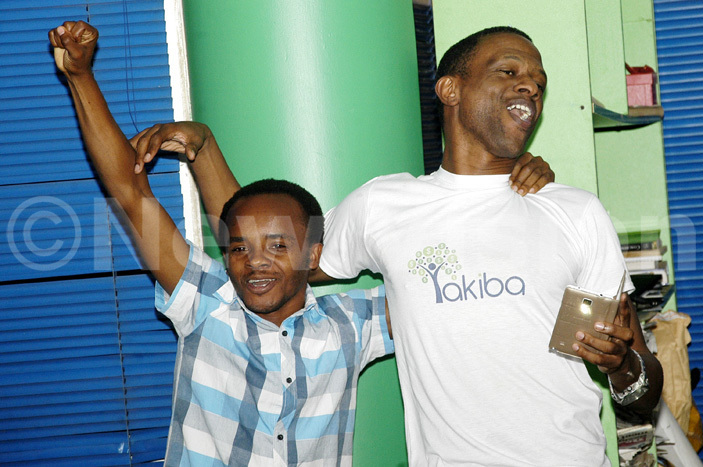Ugandan startup eyes $1m global prize
“We started this company because my mom was having difficulties trying to make a difference in her community, which was trying to use a social structure to collect savings for a women’s group. We are very happy to see that this has transformed into a business,”
On September 30, Ivan Mworozi could not hide his excitement, upon winning the Uganda round of Seedstars World, which opened opportunities for a $1m global prize in April 2017, in Switzerland.
His innovation, under his flagship company Akiba, was a mobile application that aims to transform finance by making it collective, granting people the tools for practical and transparent management of their finance.
"We started this company because my mom was having difficulties trying to make a difference in her community, which was trying to use a social structure to collect savings for a women's group. We are very happy to see that this has transformed into a business," he told New Vision.
Seedstars World is an initiative launched by Seedstars SA, a Swiss-based company which launches ideas, grows startups and builds companies. The objective of the competition is to find the best among emerging and fast growing startup and help them to grow.
Mworozi believes he can make indelible contributions to the financial inclusion eco system in Uganda and around the world, through his innovation.

He says his new app allows people to use the power social circles, such as small saving groups, to achieve financial goals.
"It has an algorithm that allows members in a group to lend money to each other at an interest rate they chose. The Akiba personal finance app helps to organize savings circles online from your phone with your friends and also enables you to pay to your circle from your mobile without having to meet the other members of your circle," he explains.
Available statistics from the World Bank indicate that there are at least 2 billion people across the world that are still financially excluded because of using a social structure to achieve a financial goal.
"Our creation, can be compared to Uber, and already we have almost half a million businesses in Europe and America that are using our system while others are looking at it," Mworozi said.
In an interview with Professor Augustus Nuwagaba, an economics lecturer at Makerere University, he said Uganda's economy has been resilient in the past, growing at least 5% every year, yet the growth has not been realised by the ordinary people because of savings and financing gaps in the economy.
"If you compare people's incomes to GDP, you will see that it is very little. However, if you compare the velocity of money in the economy, Uganda is ranked among countries with the highest velocity in the world, which means the money just needs a platform to be saved," he said.
Nuwagaba said Uganda's financial sector has been faulted in the past, as having one of the lowest savings to GDP ratio in Sub-Saharan Africa, standing at 11.8% of GDP with majority of the population being un-banked.
"Although the banking industry has experienced significant transformation over the past three years, with rapid growth in the number of service outlets for various categories of financial services, statistics indicate that 62% of Ugandans still have no access to financial services. This is what products like this will change," he said.
He said statistics from Bank of Uganda indicates that the savings to GDP ratio in Uganda is still low at 16% compared with Tanzania at 17% and Kenya at 25%.
"These low savings rate have been largely due to the fact that traditional banking remains out of reach for most people, due to factors like inadequate financial services, financial illiteracy, physical distance from banking institutions and high minimum deposit and balance requirements, limiting access to banking services," he said.
Statistics from bank of Uganda indicate that there are only 5 million Ugandans with formal bank accounts, while millions, especially in the hard to reach areas, use informal methods to save money.
One of the judges, Wayne Cook, lauded Mworozi for solving a financial inclusion problem that many countries in the world are faced with.
"Even in South Africa, banks grapple with touching the grassroots, but what you have pitched is a way to bring those people into a socially relevant financial inclusion model which can provide a way for true organic growth of the country," he said.
James Makumbi, the chairman of ICT Association of Uganda said the startup ecosystem in Uganda has been growing exponentially, as well as the quality of the startups themselves